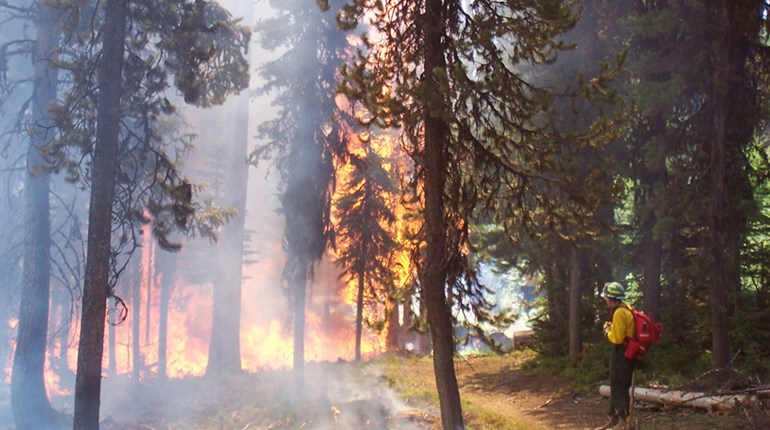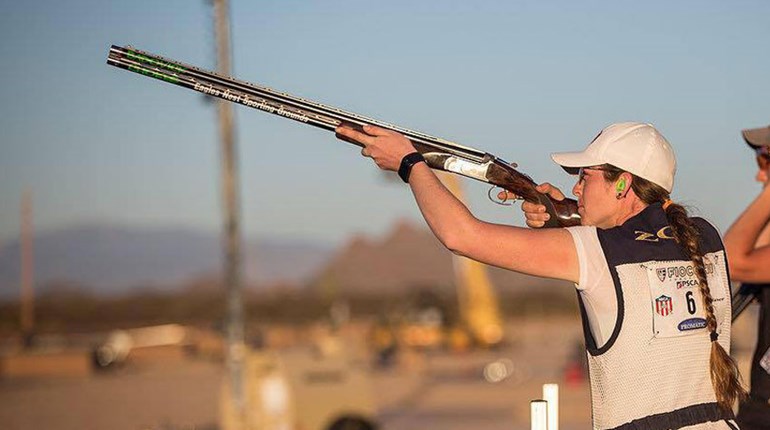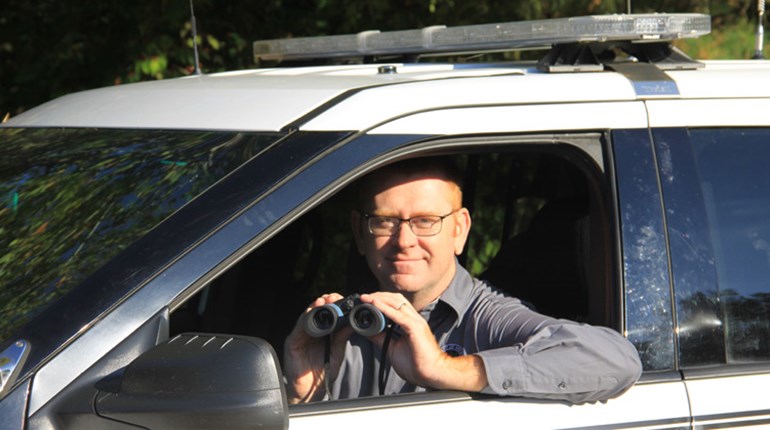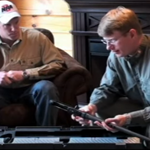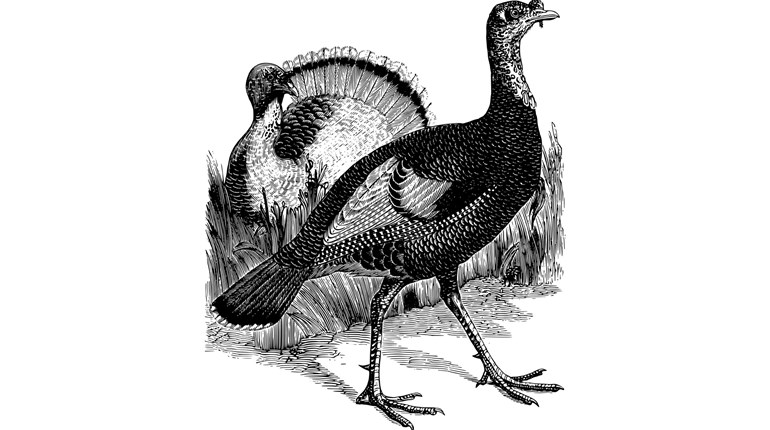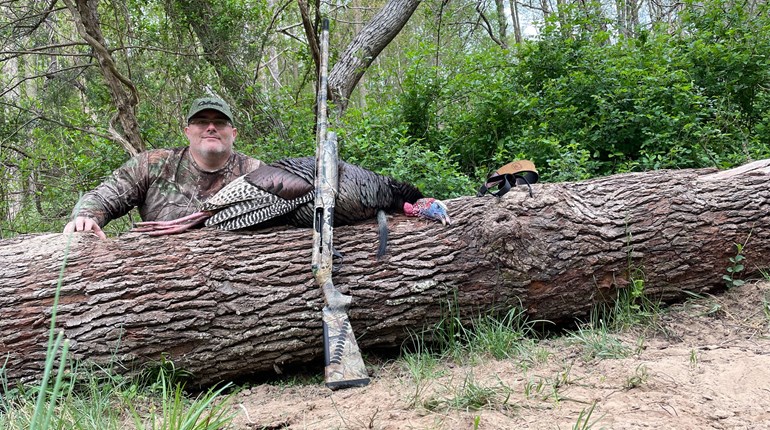
"There are not many positions on a police department where everyone waves to you as you go by," says Officer Lance Hamilton of his Fairfax County Marine Patrol unit (FCMP). Not only that, they want you to remain "close by so everyone feels safe."
The truth of those words was very much in evidence at a recent flag-raising ceremony to launch the Occoquan Yacht Club's 2014 boating season. With their police boat freshly washed and tied to the dock, Officers Hamilton and Matthew Grubb (pronounced "Groob") mingled with the crowd. Every few steps, they were stopped by the outstretched hands of boaters, both old and new, by other marine professionals and volunteers and-most noticeably-by eager boys and girls of every age and description.
The ceremony was but one of several such community events they will participate in over the course of the boating season. It's an opportunity to show their presence, to answer questions and to create goodwill among the people who use and enjoy the northern Virginia waterways that lie just south of the nation's capital.
"I can't think of a better community policing unit than his one," says Hamilton.
"Presence and community relations really are the biggest factors we bring to the water," continues Grubb. "On a daily basis, I don't think there's another unit that has as much interaction with the community as we do."
Getting There
Twelve years ago, Officers Hamilton and Grubb went to the police academy and started out their careers as patrol officers, just like all other county police officers do. "Around my seventh year," explains Hamilton, "a Lieutenant asked if I'd ever thought about being a Marine Patrol Officer." Hamilton hadn't, but the idea intrigued him. What a cool job!
There followed a formal application process, which included intense questioning on such things as general orders, standard operating procedures and state and county maritime law before a three-member panel. Upon acceptance, there was additional training: a six-month program to become an emergency medical technician (EMT), a two-week course to obtain the United States Coast Guard Captain's license, and an online course to obtain the Virginia Boater Safety Education Certificate.
Officer Grubb followed a similar path, and four years ago, the two were assigned as partners. They are the county's only full-time marine patrol officers-which is not to say they are the only marine patrol staff. That's a good thing, since patrols are seven days a week during the Memorial Day to Labor Day boating season.
"We have a supplemental staff," explains Grubb, "that consists of two auxiliary teams [composed of volunteers who hold captain's licenses] as well as three officers who work out of stations."
A Day in the Life
Although the main duty of a marine patrol officer is described as enforcing county, state and federal laws, in point of fact, enforcement makes up but a small part of the job. "Boater education, education, education would be the bulk of our daily activities," says Hamilton.
The reasons become obvious when you know that boaters and jet skiers are not required to pass written and driving tests or to obtain a license before taking to the water. "It's fair to say that on their first day of boating, more than 75 percent of the people are not familiar with the law or even the equipment they are driving their family around on," explains Hamilton.
So a typical day for Hamilton and Grubb, which generally starts in the no-wake zones as boaters leave their marinas and head for the open waters, involves a lot of meeting, greeting and teaching.
In no-wake zones, for instance, boaters are required to travel at idling, or very slow, speed, so they don't create large wakes (waves). The reason is that wakes cause boats in marinas to toss around, banging them against docks and each other and sometimes causing damage. Wakes also toss around the people who are aboard their boats.
But the average untrained boater, anxious to get to the open water and unaware of what happens in his wake, will often motor through the no-wake zone at an only slightly reduced speed.
Hamilton and Grubb also stop boats in the no-wake zone to conduct safety inspections. Again, the idea is for the officers to educate boaters about safety issues, like the importance of wearing life jackets and having ready access to fire extinguishers and flares in case of emergency. They even hand out t-shirts to all the kids on the boats they inspect. The slogan? "I Got Caught Wearing My Life Jacket by the Fairfax County Marine Patrol."
As the day progresses, Hamilton and Grubb patrol the areas where people anchor their boats. Here, they monitor water ski and jet ski activity to ensure safety precautions are being followed and, says Hamilton, "to make sure everyone is playing nicely with one another." They also keep an eye on alcohol consumption with the idea of heading off excessive drinking and driving. During the latter part of the workday, it's back to the no-wake zone yet again.
Plusses and Minuses
"I have the greatest job in the world," says Hamilton with enthusiasm, "unless it's really hot or brutally cold." Grubb concurs. But the job's not just about educating boaters or being out on the water all day. It's also about helping those in distress. Heat exhaustion is not uncommon, but there are other reasons for distress calls: a boat taking on water, for instance, or serious medical emergencies.
During the season, Hamilton and Grubb are sometimes split up and the supplemental staff is pulled in to help out. Last season, for instance, Grubb was on his own when dealing with a boating-under the-influence, or BUI, case. "That was one of the first for the unit, which was significant," says Grubb. "Prior to that, most of our hours were relegated more to the daylight hours. But last year, we adjusted our working hours to increase the opportunity to get more of them [the drunk drivers]. That was a good case for me."
But mostly, patrolling is a team effort. One time, recalls Grubb, "Lance [Hamilton] and I rendered assistance to a man who suffered a massive heart attack. With our training as EMTs, we were able to bring him back."
Although the man eventually died, Hamilton and Grubb, take satisfaction from the fact that they were able to help resuscitate him and get him to the hospital, where his wife could be with him. "We kind of look at it as bringing closure to the family," says Hamilton.
Sometimes helping boaters in distress is a collaborative effort, say with a fire and rescue boat or the Coast Guard. Calls to assist may even be outside their patrol area. "When that happens," says Grubb, "we call the duty officer and ask permission to leave our jurisdiction in order to assist."
And, of course, sometimes the job's solely about enforcing the law so that the boating community can enjoy their preferred outdoor activity in a safe environment.
Other Duties as Assigned
With its close proximity to Washington, D.C., the FCMP is sometimes called upon to help with Homeland Security. "We were at the inauguration and the State of the Union address," explains Grubb. "We've also patrolled for the Secret Service and been part of security zone patrols."
During the non-boating season, tasking is a bit different. "In the old days," says Grubb, "it was back to patrol duty."
But Hamilton and Grubb are also SWAT officers, so when they aren't patrolling the rivers, they're working on the SWAT team. As a result, they spend very little time in an office setting, nor are they out walking a regular beat.
"SWAT is better," says Grubb with a grin. Hamilton nods his head in ready agreement.
Is It For You?
If you're attracted to law enforcement, like working in a team and enjoy communicating with people, you might want to give serious thought to the idea of taking on the "cool job" of a marine patrol officer.
Eight Tips for Future Marine Patrol Officers
If you think you'd like a career as a marine patrol officer, there are things you can do starting right now that will help pave the way:
Start focusing your attention on some of the basic skills. "As a police officer, we'll build those skills for you, but you can do some of that ahead of time," says Grubb.
Get into scouting, because it teaches skills that will come in handy-including some nautical skills, like learning to tie knots. "And, says Hamilton, "scouting helps build good character."
If you have an interest in boating, take the boating safety education course. It's online, and it's free of charge.
You can also begin working on the U.S. Coast Guard Captain's License. "Start documenting your time now, as a child, so when the day comes that you want to get it, you have what you need in hand," explains Grubb.
If you think you're going to be interested the medical end, train to become an EMT or volunteer for the fire department when you are old enough (usually 18 years of age).
The job of a marine patrol officer is about talking to people, so develop strong communication skills. "Learn public speaking," says Hamilton.
Stay in good shape and be physically active. "Climb trees and do kid stuff that doesn't include an Xbox or Wii," says Grubb. "Also get involved in sports, in team environments. There's nothing we do that's successful if it's not done as a team."













